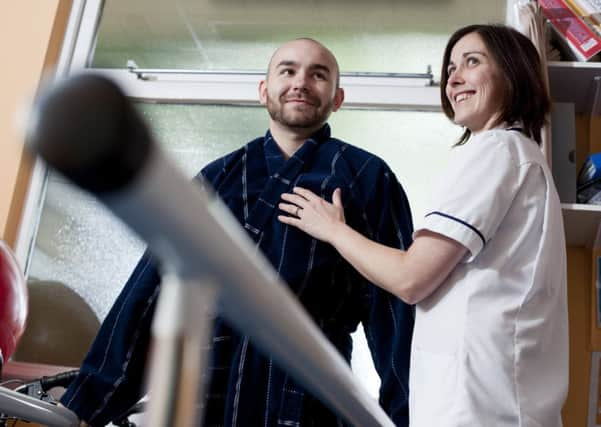Hospices are about living life to the full


For nearly 50 years, the hospice movement has embodied the philosophy of supporting people to live well until they die; of making the most of every single day, and focusing on what is important. Hospices have championed holistic care: care that supports every aspect of living, and has embodied support which enables us to be as well as possible so that we can live as we choose for as long as we can.
The foundation of this support is, of course, treating physical symptoms, and hospice medical care involves the treatment of complex pain, unrelenting nausea, fatigue and other symptoms that can stop us in our tracks. But there is so much more to hospice care than treating symptoms. The effect of the illness on our lives is multidimensional. It can be spiritual – people often have questions about meaning and hope, and sometimes faith. It is psychological – living with illness can raise emotions that can be difficult to process and get in the way of our living. And it’s social, too – how to keep a roof over our heads if we can’t go out to work, how to pick up the kids from school, how to help friends to keep in touch when they don’t know what to say. The effect is felt not just by the person with the diagnosis, but by families, friends and supporters, both before the person dies and into bereavement too.
Advertisement
Hide AdAdvertisement
Hide AdHospice care takes a whole multi-disciplinary team approach to support people with the most complex needs to live the whole of their lives well, and to keep the person at the very centre of all that happens.
At St Columba’s Hospice in Edinburgh, our team includes doctors, community nurses, chaplains, pharmacists, counsellors, social workers, complementary therapists, physiotherapists, occupational therapists...and many more. We work together to meet the different and changing needs of people as they approach the end of their lives and also support those who are close to them as they share in the journey.
We often think about physiotherapy and occupational therapy in relation to people recovering from sports injuries or surgery. But having palliative physiotherapy and occupational therapy can transform what people are able to do in their last months and weeks and dramatically improve their quality of life. Palliative physiotherapists and occupational therapists help with symptom management: easing breathlessness, lymphoedema and fatigue; retaining strength, balance and stamina; accessing equipment, all of which enable people to live more independently. Everyone’s goals are different, so for one person it might be about working towards that last family holiday; for someone else it might be continuing to manage independently at home, or it might be about being able to be out of bed and sitting in a chair for when your children visit.
Hospice care isn’t just about what happens inside the building either. We know that most people in the UK want to die at home and that the health and social care bodies are actively working with the Scottish Government to develop and strengthen services that will enable this to happen more easily.
It is incredible that such a large proportion of hospice workforce are volunteers. At St Columba’s we have volunteers in almost every area of work: on the wards and day services, in the cafe, the gardens, in administration and finance, in the chaplaincy and bereavement support teams and on reception. We are reminded daily that we wouldn’t exist without the support of the communities we serve.
One of the main joys of working in a hospice is the richness and variety that each person brings. A patient said recently “you’ve given me back the life I thought I’d lost... it’s so strange that it takes dying to make you see what living is all about.”
Like many hospices across Scotland, St Columba’s Hospice is much more than just doctors and nurses. Modern hospice care involves a multi-professional team working to support the communities we serve to ensure that people approaching the end of their lives are able to do so with courage and with the holistic support that they need to enable them to live well until they die.
Becky Chaddock, Head of Supportive Care, St Columba’s Hospice, Edinburgh, www.stcolumbashospice.org.uk